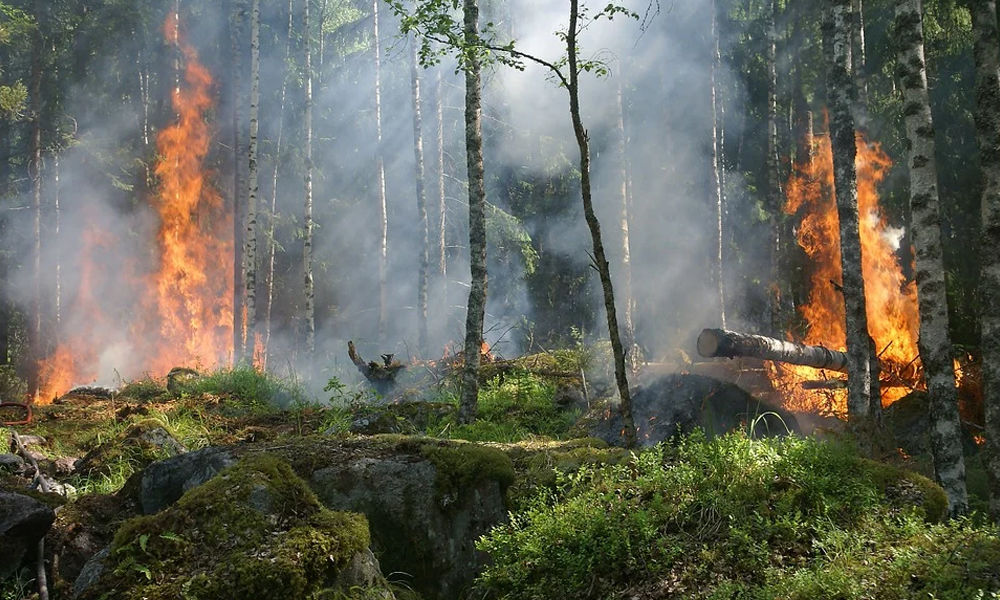Globally, around 3.8 million hectares of tropical primary forest was destroyed in 2019 which is the equivalent of losing a football field’s worth every six seconds, a report by Global Forest Watch stated.
Based on a satellite analysis, the report details the alarming rate of tree cover loss that took place last year.
Almost 12 million hectares tree cover was lost across the tropics which is an area roughly three times the size of Switzerland. This includes nearly 4 million hectares of dense, old rainforest, according to data compiled by the University of Maryland and released on Global Forest Watch.
The report also states that primary forest loss was 2.8% higher in 2019 than the previous year.
Primary forests are reported to be ‘some of the densest, wildest and most ecologically significant forests’ in the world and are particularly significant for carbon storage and biodiversity.
According to the researches, carbon dioxide emissions associated with last year’s forest loss are equivalent to the annual emissions of 400m cars.
Worst Hit Regions
The hardest-hit areas were in South America, Africa and Southeast Asia, the report stated.
Brazil
Brazil faced the largest loss, with over 1.3 million hectares cut down or burned in 2019.
Last year, Brazil President Jair Bolsonaro had come under heavy criticism from global environmental organisations for permitting increasing rates of deforestation within the country.
Further, Bolsnaro has also been accused of incentivising illegal loggers and cattle ranchers to burn down, clear and use the rainforest land for agribusiness purposes.
According to the data from Brazil’s National Institute for Space Research (INPE), the first trimester of 2020 witnessed more than 50% increase in deforestation compared to last year. Brazil’s space research centre noted in August that the number of fires that took place in the country was 80 per cent greater than the previous year, with over half of these in the Amazon.
Bolivia
The landlocked country located in western-central South America, Bolivia, experienced a record amount of tree cover loss, with over 80 per cent more forest area lost than in any previous year.
The recent removal of restrictions on agricultural activity was deemed to be the cause.
The report states that Bolivia lost 290,000 hectares of primary forest in 2019. Only Indonesia, the Democratic Republic of Congo and Brazil lost more tree cover over the course of the year.
Australia
Although not a part of the tropics, Australia, saw a record-breaking year for tree cover loss due to bushfires in late 2019 and into 2020.
The report stated that there was a six-fold increase in tree cover loss from 2018 to 2019, and the real extent of the damage is not yet known as some fires continued burning into 2020.
Promising Downward Trends
GFW stated that West Africa showed some ‘promising downward trends’ last year.
There was a decrease in primary forest loss by more than 50% in 2019 compared to the previous year, in both Ghana and Cote d’Ivoire.
Despite being deemed as the region with the highest amount of primary forest loss in 2019, Indonesia recorded its third year in a row of decline, the report found.
The report cited government actions and environmental policies as some of the reasons for downward trends.
The level of global forest loss was unacceptable and that it was clear what was needed to reverse the trend, Frances Seymour, a senior fellow with the institute said. If governments put into place good policies and enforce the law, forest loss goes down,’ The Guardian quoted her as saying.
‘But if governments relax restrictions on burning, or signal an intent to open up indigenous territories for commercial exploitation, forest loss goes up,’ she added.
According to Seymour, the global community could help address the problem by introducing economic or market incentives for safeguarding forests.











